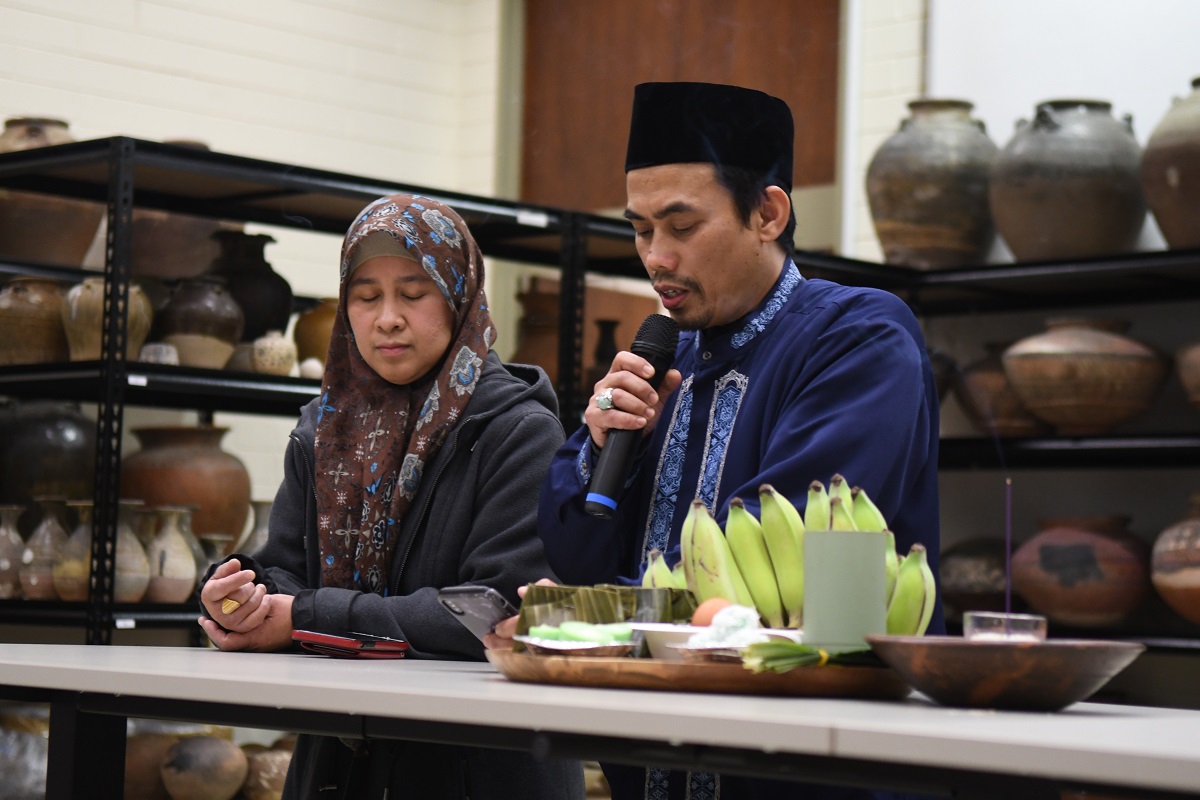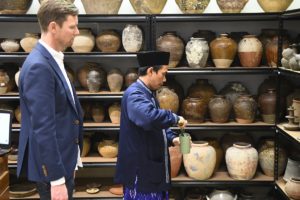
A traditional Indonesian cleansing ceremony held recently in Flinders University’s Southeast Asian Ceramics Archaeology Laboratory (SEACAL) has blessed the team and removed potential obstacles as they embark on the next steps of the ARC Linkage Project ‘Reuniting cargoes: Underwater Cultural Heritage of the Maritime Silk Route’.
A traditional Bugis-Makassar Passili ritual was initiated by Dr Martin Polkinghorne and conducted by Flinders alumni Dr Muja Hiduddin and Fatimah Rahman in September, to bless the project team and purify the objects. Guests at the traditional ceremony included two incoming PhD students from Indonesia’s Ministry of Marine Affairs and Fisheries.

Passilli means “to sprinkle water” and the cleansing ritual is accompanied by other significant offerings of sweet cakes, bananas, sticky rice and incense.
Each item has a special significance to the success of the project. For instance, Barongko cake, wrapped and steamed in banana leaf, is reserved for special events and can only be prepared by a noble person. Cantik manis cake is especially sweet and offers the promise of good tidings. Kue klepon cake floats to the surface when made, ensuring that knowledge will also float from the depths for us to see. A bunch of bananas and the sticky-rice provides assurances that the project team will stick together. And incense invites bidadari (angels) into the project team’s presence.
Dr Muja and Fatimah also sang prayers in Islamised Bugis as the ceramics were sprinkled with sacred water. After more than 1000 years, these ceramics are now ready for the next journey of their lives, to be the focus of intensive research at SEACAL.

